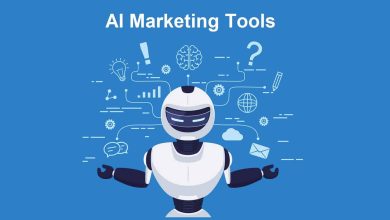
For years, SEO was a predictable game: target the right keywords, build quality backlinks, and fight for the top spot on Google. Simple enough, until it wasn’t. Fast forward to 2025, and the rules of search have been rewritten. AI has transformed how people discover content, and brands that don’t adapt will be left in the digital dust.
Search is no longer confined to Google. People are looking for information everywhere, on TikTok, through voice assistants, in Reddit communities, and via AI-powered recommendations. Visibility isn’t just about ranking on a search engine anymore; it’s about ensuring your brand appears in the right place at the right time, no matter where the search happens.
But here’s the reality check: while AI is reshaping discovery, traditional SEO and paid media still deliver the strongest return on investment. The winners in 2025 won’t be those who abandon old tactics but those who evolve, blending proven strategies with AI-driven search trends. Let’s break down what’s changing, and what you need to do to stay ahead.
Positioning Your Brand in the AI-Powered Search Landscape
Search isn’t dead; it’s just more fragmented than ever. Simply ranking on Google isn’t enough. To remain competitive, brands must optimise for intent-driven search experiences across multiple platforms. That means refining messaging, maintaining consistency across channels, and crafting content that meets users where they are, whether they’re scrolling through social media or asking their voice assistant for recommendations.
Opportunities are everywhere. AI-powered search engines, influencer-driven content, and user-generated discussions are all shaping brand visibility. The brands that understand how their audience searches, and tailor their approach accordingly, will come out on top.
Online Communities: The New Search Battleground
Think Google rankings matter most? Not always. Some of the most influential search activity now happens in online communities, Reddit threads, Discord groups, LinkedIn discussions, and niche Facebook forums. These spaces have become trusted sources of insight, where real people share authentic recommendations. And AI-driven search engines are paying attention, surfacing user-generated content, expert takes, and social proof more than ever.
Winning here isn’t about pushing sales messages, it’s about engaging authentically. Brands that contribute real value to these discussions, rather than broadcasting ads, will earn visibility and trust. And while community engagement isn’t a direct revenue driver, it fuels the funnel: people discover brands in these spaces and turn to Google or paid media when they’re ready to buy.
Voice Search: The Invisible SEO Shift
“Hey Siri, what’s the best electric car for city driving?”
Sound familiar? That’s because voice search is no longer a novelty, it’s a daily habit for millions. Smart assistants like Alexa, Google Assistant, and Siri process billions of queries, and they don’t deliver traditional search results. Instead, they prioritise conversational, natural-language responses.
For brands, that means adapting SEO strategies. Gone are the days of keyword-stuffing “best running shoes 2025.” Winning in voice search requires content that’s structured for AI interpretation, think long-tail queries, FAQ-style answers, and schema markup that makes information easy to parse.
Social Media: The Unofficial Search Engine
Here’s a reality check: Gen Z is more likely to search for a restaurant on TikTok than on Google. And they’re not alone.
Social platforms like TikTok, Instagram, and even X (formerly Twitter) have become go-to search engines, especially for product recommendations, travel tips, and career advice. Brands that rely solely on Google rankings are missing out. The smart ones are treating social platforms as part of their search strategy, creating engaging, searchable content, short-form videos, carousels, and interactive posts that make discovery seamless.
Of course, social search isn’t a direct conversion driver. But it’s a powerful awareness tool. Pair organic discovery with targeted paid campaigns and strong SEO fundamentals, and social traffic becomes a real business asset.
AI-Driven Search: The End of One-Size-Fits-All SEO
AI isn’t just changing how people search, it’s changing what they see. With AI-powered search engines delivering hyper-personalised results, no two users will get the same answer. That means traditional keyword rankings matter less than ever. Instead, search success hinges on contextual relevance, trust, and AI-friendly content structures.
This shift rewards brands that focus on authority, expertise, and engagement. First-party data, well-researched insights, and structured content will be the key to appearing in AI-generated results. It’s no longer about chasing high-volume keywords, it’s about ensuring AI recognises your content as the most relevant answer.
Cutting Through the Noise in an AI-Dominated Search World
With AI curating highly personalised search experiences, standing out is harder than ever. Brands need to take a multi-channel approach, ensuring they show up where it matters most.
AI-driven insights are crucial for understanding user intent, trending topics, and shifting behaviours. The brands that leverage these insights will create content that’s not only seen but acted upon, turning searchers into customers.
The Battle for Search Authority: Legacy vs. New Media
SEO is no longer just a competition between brands, it’s a battle between legacy media and independent creators. Established outlets like Forbes and The New York Times still carry weight, but AI-powered search is increasingly surfacing content from bloggers, influencers, and industry specialists.
For brands, this is an opportunity. Instead of chasing press mentions, they can become the authority themselves. A compelling Substack newsletter, an insightful LinkedIn article, or a deep-dive YouTube video can outrank mainstream media. The brands that embrace this shift and invest in high-quality, expert-led content will win.
How to Win at Search Everywhere Optimisation in 2025
Success in the AI-driven search era requires a multi-layered approach:
✔ Build a strong brand presence – Maintain consistency and authority across all platforms.
✔ Engage in online communities – Show up where real conversations happen and add value.
✔ Optimise for voice search – Focus on conversational, long-tail, and structured content.
✔ Leverage social search – Create content that’s searchable, shareable, and engaging.
✔ Stay ahead of AI trends – Adapt to personalised search with dynamic, intent-driven content.
✔ Cut through the noise – Use AI-driven insights to reach the right audience at the right time.
✔ Double down on traditional SEO and paid media – They still deliver the highest ROI.
Final Thoughts
Search Everywhere Optimisation isn’t a passing trend, it’s the new digital marketing reality. But here’s the good news: SEO isn’t dead. Far from it.
Google rankings still matter, and they remain one of the strongest drivers of ROI. But brands that want to dominate in 2025 must evolve. The future belongs to those who balance traditional SEO fundamentals with AI-driven discovery, ensuring they’re visible wherever, and however, people search.





